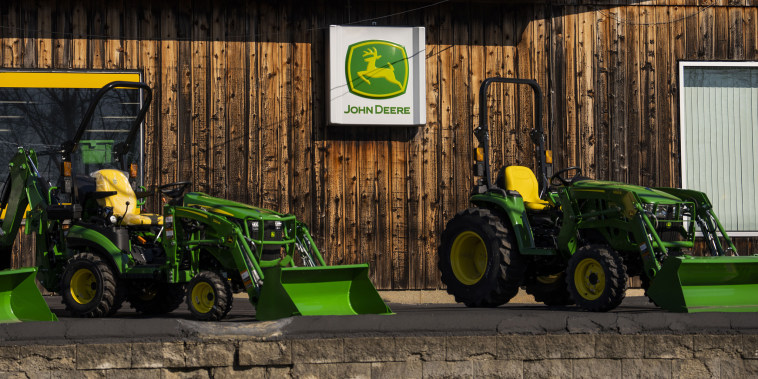In the wake of increasing pressure from right-wing online campaigns, John Deere has taken a significant decision to no longer sponsor Pride festivals. This move has stirred debates and discussions on corporate activism, inclusivity, and LGBTQ+ rights. As one of the leading manufacturers of agricultural equipment, John Deere’s decision holds significance beyond just sponsorship dollars. The company’s choice reflects a larger trend in the corporate world where companies are being pushed to re-evaluate their public image, values, and engagement in social issues.
The decision to abandon Pride festival sponsorships comes at a time when corporations are finding themselves in the center of societal and political debates. Companies are being challenged to take a stand and align their values with their public actions. In recent years, many businesses have actively supported Pride events, showcasing their commitment to diversity and inclusion. For John Deere, pulling out from such sponsorships signals a shift in its public stance on LGBTQ+ rights.
Right-wing pressure campaigns have been effective in influencing corporate decisions, as seen in the case of John Deere. The ability of online groups to mobilize and target companies based on their social initiatives has become a potent tool for advocacy. While the company may have intended to maintain neutrality on social issues, its withdrawal from Pride sponsorships speaks volumes about the influence of online activism on corporate choices.
The decision by John Deere to discontinue support for Pride festivals raises questions about the role of corporations in social justice movements. As more companies navigate the complexities of modern activism, they must consider the impact of their actions on various stakeholder groups. While some may see John Deere’s move as a retreat from progressive values, others may view it as a calculated business decision to avoid controversy.
In conclusion, John Deere’s decision to abandon Pride festival sponsorships underscores the growing influence of online pressure campaigns on corporate decision-making. The move also reflects a broader trend in the corporate world where companies are re-evaluating their social responsibilities and engagement in social issues. As businesses continue to navigate the evolving landscape of activism and advocacy, they must strike a balance between their corporate interests and societal expectations. The case of John Deere highlights the complexities and challenges that companies face when it comes to aligning their values with their public actions.
